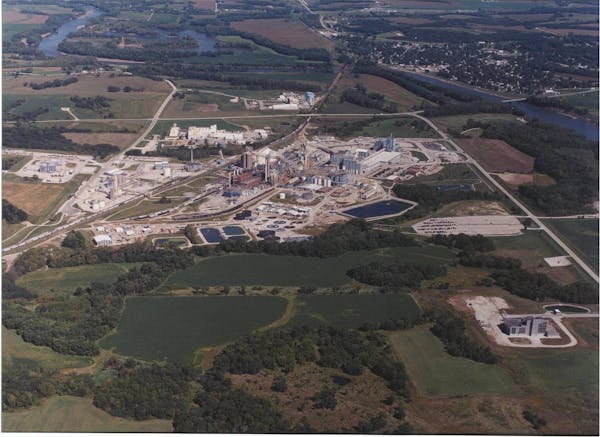A Texas company that turns corn sugar into chemicals typically made from fossil fuels is building a 500,000-square-foot manufacturing plant in southwest Minnesota.
Solugen announced last week its next "Bioforge" — the name it calls its chemical plants — will open in Marshall in 2025.
"The initial phase of the project will significantly increase Solugen's manufacturing capacity, which is critical for commercializing our existing line of molecules and kicks off plans for a multi-phase large-scale U.S. Bioforge buildout," co-founder and chief technology officer Sean Hunt said in a news release.
The plant will be located next to the ADM corn processing facility in a partnership with the Chicago-based commodity giant.
ADM will provide the dextrose (corn sugar) that Solugen will process into chemicals already used in packaging, construction, food, medicine, fertilizer, water treatment and cosmetics.
"ADM is one of the largest dextrose producers in the world, and this strategic partnership will allow us to further diversify our product stream," Chris Cuddy, president of ADM's Carbohydrate Solutions business unit, said in a statement.
The plant is expected to employ 100 people during construction and 40 people once the first phase opens.
"This industry-leading facility will serve as a powerful economic driver for the city, creating new jobs and diversifying our industry," Marshall Mayor Bob Byrnes said in a statement.
Solugen would not say how much the company is spending on the Minnesota plant, which is more than 20 times the size of its flagship facility in Houston.
Investors have poured more than $600 million into the company in the past several years, according to federal filings.
Last year's $200 million funding round "allows us to break ground on our next Bioforge" and get started on others, the company said at the time.
The Marshall plant will focus on scaling production of "products we know we can make today at the right price points," a spokesperson told the Star Tribune.
"The increased capacity of Bioforge Marshall will free up operations at Bioforge Houston, our lead R&D center, for the development of new, innovative molecules in rapidly growing markets," the company said. "Over the next decade, we plan to expand our pipeline of molecules to include several commonly used chemistries that underpin a significant portion of modern life."
The $4.7 trillion chemicals industry accounts for 2% of global carbon emissions, according to a McKinsey report. Chemical companies are collectively the largest industrial users of energy in the world, according to the International Energy Agency.
"This is largely because around half of the chemical subsector's energy input is consumed as feedstock — fuel used as a raw material input rather than as a source of energy," the group says.
Founded in 2016, Solugen produces organic acids with plant-derived ingredients and enzymes in a process that has a lower carbon footprint than using petrochemicals, the company says.

Minnesota Department of Health rescinds health worker layoffs

Eco-friendly house on 30 acres near Marine on St. Croix listed at $1.6M

DOGE cuts federal money for upgrades at Velveeta plant in New Ulm

